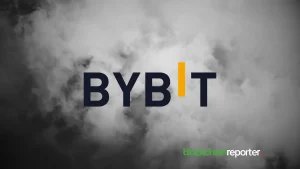
- The South Korean government is planning to introduce taxes on cryptocurrencies and initial coin offerings (ICOs)
- ICOs are currently banned in South Korea, but that could change in the future
According to South Korea’s new finance minister Hong Nam-Ki, who replaced the previous finance minister, Kim Dong-yeon, at the beginning of November, the country’s government is planning to introduce taxes on cryptocurrencies and initial coin offerings (ICOs).
Tax Regulations Draft Tabled to the National Assembly
On Sunday, he has submitted a written answer to the National Assembly for his confirmation hearing. Hong said the tax plan would be finalized according to the creation and progress of the taxation infrastructure and the trend on international discussions.
According to Hong, a group of experts from South Korean government agencies including the National Tax Service and the private sector will study the existing examples of cryptocurrency regulation policies of other countries to develop the taxation plan.
The minister-to-be defined cryptocurrency as “electronic signs of values issued privately” as opposed to such issued by central banks and financial institutions.
Hong pointed out that because cryptocurrencies are a comparatively new phenomenon, there is no internationally agreed regulatory framework, which creates problems for end users, with the most serious being market overheating and investor protection.
“Therefore, we need to be careful in building the regulatory framework.” Hong said.
The Future of ICOs in South Korea Remains Unclear
On the October 29, 2017, South Korea’s financial regulator has banned raising money through ICOs. The stance of South Korea on ICOs has remained the same since, but it could change in the future.
Hong Nam-Ki explained that allowing ICOs is possible, but it depends on many factors, such as market conditions, international trends and investor protection issues. The decision will be made only after careful examination of all these aspects.
He commented:
“We will determine our policy orientations on ICOs with relevant agencies after reviewing the results of the financial regulator’s market survey and getting feedback from experts.”
The Faith of Blockchain-related Businesses in South Korea
In the commentary, Hong Nam-Ki has also expressed his views on the government’s exclusion of crypto exchanges from the category of start-up businesses. Hong said the decision was made because of the criticism that crypto exchanges were vulnerable to illegal acts and were merely a brokerage service separate from blockchain technology.
Hong also pointed out that it is vital for the South Korean government to support blockchain technology and businesses related to it, because, based on information by Statistics Korea, up to 90% of business types that are classified blockchain-related (not counting the crypto exchanges) can be still acknowledged as venture companies.









